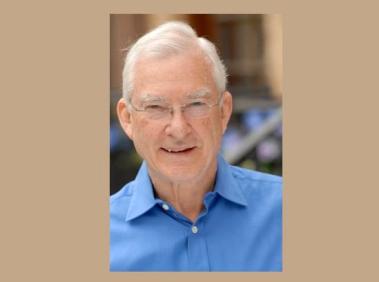Talk Radio Is Not That Bad - Charlie Warner - MediaBizBloggers

Guest blogger Neil Derrough writes about talk radio, and he has the executive and journalistic background and expertise to discuss the subject. Neil was the general manager of CBS owned KCBS-AM when it switched to an all-news format in 1967 and rose through the CBS Radio and Television stations divisions to become the president of the CBS Television Stations Division in the 1990s. Here’s what Neil writes:
As I observe the discussion of news and journalism today I’m struck by the amount of criticism aimed at talk radio. It seems to me that much of this contempt comes from the more traditional media or as some would call it, the mainstream media. As with any form of media, some of the criticism is richly deserved. The tune-out factor for so many of the rants that fill time with unsubstantiated points of view on talk radio is often appalling. However the attempt to marginalize this variety of information is suspect.
For a little background, I as must fall back to my beginnings at the start of this forty-year news cycle. In the early sixties a few AM radio stations were plugging away with a hybrid of a talk and music format. Because of the so-called Fairness Doctrine a lot of the talk that stations aired was pretty dull and watered down. Only when a station dared to stray into opinion and hoped not to get caught by the bosses did the programming become more lively. The banality of much of the talk programming created by trying to comply with the Fairness Doctrine, and the dynamics of the 1960’s drove CBS to make a wise business decision. They changed several of the CBS radio stations into an all-news format in New York, Chicago, Los Angeles, and San Francisco. Other broadcasters later embraced this format and soon advertisers began to support the immense appetite for news and information. Because of the CBS News reputation at that point their creditability helped the all-news movement establish high journalistic standards.
The Fairness Doctrine was rightfully revoked and soon after came Rush Limbaugh. Let me try and make clear that I am not going to support or criticize Rush. But, there is a need to acknowledge the significant influence that Rush has had on where we are today with talk radio. The avalanche of talk radio hosts that have evolved since Rush came on the scene is a phenomenon that has created the climate that surrounds present day talk radio. It’s also where the standards started to slip and talk radio too often went over the line. Some of the companies that own these stations look at it as only a business without the benefit of a journalistic history.
The point I started out to make before I got into a history lesson is that talk radio is a major factor in today’s media mix. And it annoys the hell out of a very vocal crowd. The attempt to marginalize it often is purely political and ignores the evolution of the importance of the significant audience that has the right to depend on the options provided by talk radio. It’s also important that this audience be a part of the national discussion of today’s issues. To characterize that audience as mindless and often much worse, is a political tactic that is being practiced at the highest levels and should be understood for what it is.
I submit that there are often discussions with authors, scholars, politicians, and other experts that contribute to our better understanding of the important issues we are facing today. I get so tired of the implication that NPR is the only place you can get reliable information on the radio. If listeners are discriminating in their choices, they can avoid the ridiculous rants by hosts that in my view deserve to be ignored, and get more detail with real give and take than much that’s provided by the mainstream media.
So the critics and politicians should relax, live with it, and try and tolerate the availability of a different point of view.

